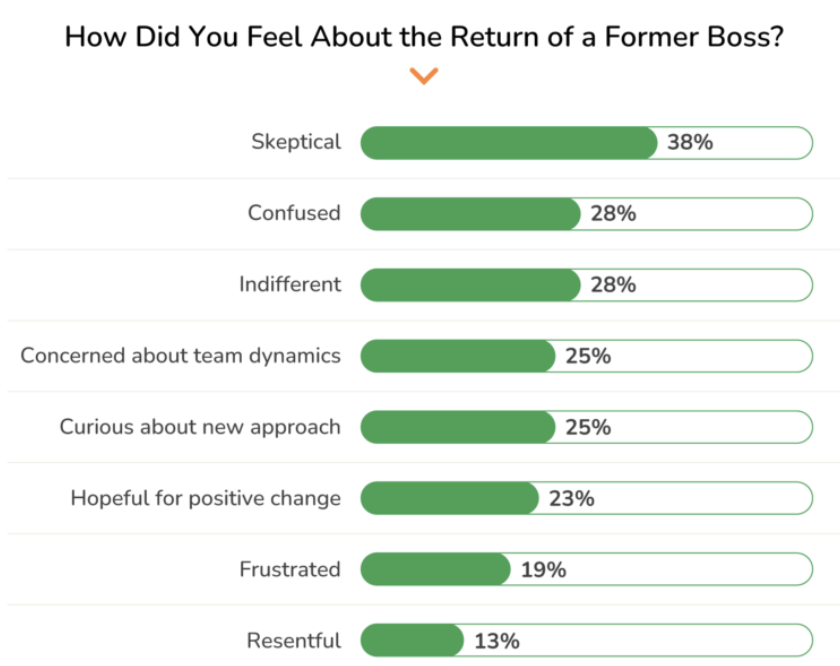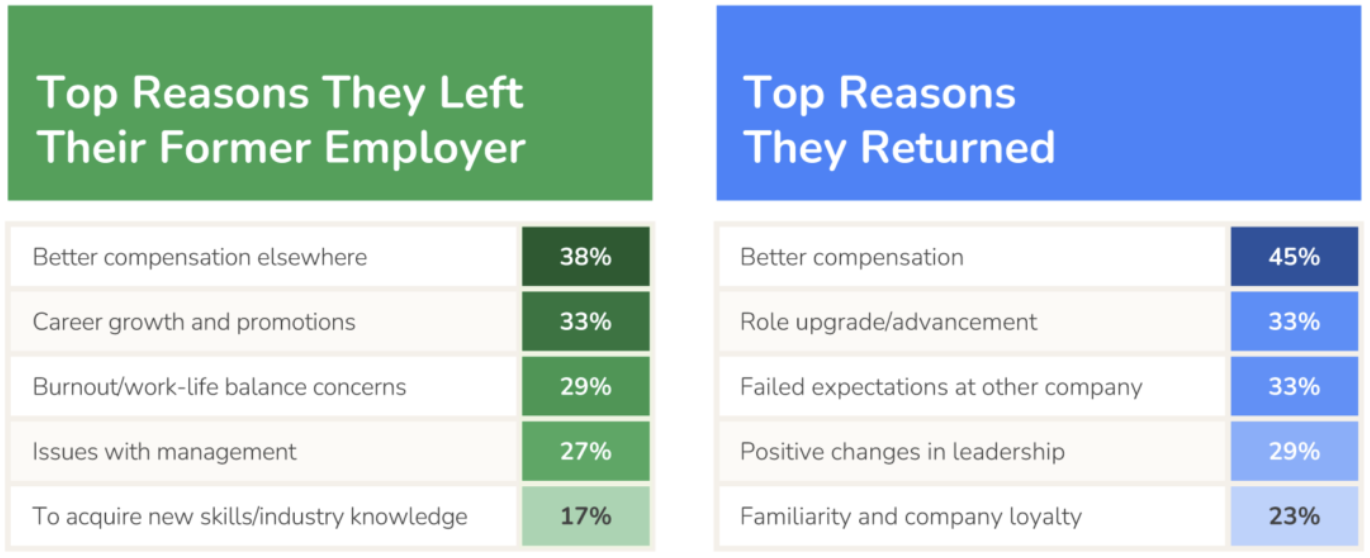
Employees report feeling sceptical, confused, concerned about team dynamics as former bosses return

The practice of returning to former employers as boomerang employees is not a new trend – and it extends to managers as well.
But a new report from SideHustles.com found that not everyone at work is happy about the workplace return of "boomerang bosses."
The report found that 21% of employees oppose the return of their former bosses in the workplace. In fact, only 36% of them support this move.
One-third of employees are sceptical about the return of their former boss to the workplace. Around a quarter are also confused and concerned about the team dynamics.

Nearly one in 10 employees said they also felt overlooked and unappreciated after the return of a former boss, as another 51% felt they could have done a better job than the returning manager.
These negative feelings toward boomerang bosses have also made some employees reconsider their own jobs, according to the report.
One in four employees said they have thought about quitting following the return of a manager, while 15% said they quit their job after a former manager's comeback.
The rise of boomerang employees came after The Great Resignation that hit workplaces during the pandemic.
Findings from UKG in 2022 revealed that 43% of employees who quit their jobs during the pandemic admit that they were actually better off at their old job. In fact, nearly one in five people who quit said they already came back to the employers that they left, with another 41% saying they are considering it as an option.
But while boomerang employees left because of regret, this isn't the case for boomerang bosses. The data from SideHustles.com found that 66% of boomerang bosses were invited to come back.
Why? Familiarity with the organisation may be a big reason, as this is a common benefit cited by experts on why employers rehire boomerang employees in the first place.
The top reason why boomerang bosses agreed to return was also the top reason they left in the first place: better compensation (45%).
According to the report, boomerang managers received a 15% salary increase on average upon returning to their former employer.
A third of boomerang bosses also said they came back because of role upgrade/advancement, as well as failed expectations at the other company.
 Another top incentive for coming back is getting flexible work arrangements, according to 39% of boomerang bosses. Others said:
Another top incentive for coming back is getting flexible work arrangements, according to 39% of boomerang bosses. Others said:
Despite these benefits, however, the report found 14% of boomerang managers regret returning to their previous employer. Among them, 68% are considering leaving again after an average of just nine months back.
While the trend of boomerang employees intensified during and after the pandemic, there have been other well-known boomerang cases in the past, even involving popular executives of today. They include: